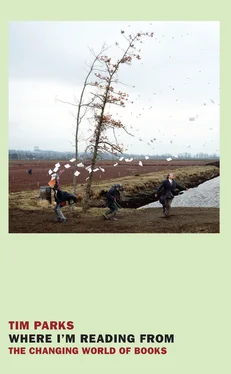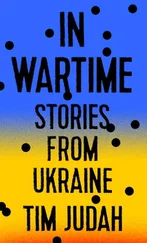Or what about the curious case of Thomas Hardy’s first, unpublished novel? Having courageously left his village home to train as an architect in London, Hardy suddenly retreats to mother in Dorsetshire, pleading fatigue and illness (we have no record of any symptoms) and in 1867, aged twenty-seven, writes The Poor Man and the Lady , whose main character Will Strong, a bold Hardy alter ego, courts a rich man’s daughter, is chased away by the family, and launches himself pugnaciously into politics. Hardy described the book as a “dramatic satire of the squirearchy . . . the tendency of the writing being socialistic, not to say revolutionary.”
There are various accounts about why the novel was never published, but as Hardy has it, publication was offered, but the publisher’s reader, the novelist George Meredith, warned him that the content was explosive and could damage his career. So, afraid of consequences, he withdrew it. Courage dominates in the story of the strong-willed Will Strong, but not in Hardy’s dealings with his publishers; he is courageous only in so far as he supposes the work will not intersect with reality. He then set about writing the entirely innocuous comedy Desperate Remedies (the title says it all). Later in his career Hardy did take on Victorian morals very courageously in Tess of the D’Urbervilles and Jude the Obscure , but was so harrowed by the aggressive reviews he received that he chose to stop writing fiction and turned to the much safer production of poetry. “No more novel-writing for me,” he remarked. “A man must be a fool to deliberately stand up to be shot at.”
One could name any number of novels in which the tension between a desire for and fear of intense experience is played out in all kinds of ways: J. M. Coetzee’s Youth and Damon Galgut’s The Good Doctor are two contemporary novels that immediately come to mind; Coetzee’s characters are often eager to be tested by life, but at the same time afraid that they will be caught out, found to be lacking in courage. Peter Stamm’s novels ( Unformed Landscape, On a Day Like This , and Seven Years ) suggest how the need to create narratives for our lives forces us toward moments of risk and engagement, while fear of those moments may lead us to fantasize a self narrative rather than really act, or alternatively to become hyper-rational and cautious in our decision making. These antithetical energies, toward and away from adventure, are mirrored in the writing itself as Stamm sets the reader up for melodrama, then seems to do everything to avoid or postpone it, as if, like his characters, he would much prefer to plod quietly along with life’s routine, but knows that sooner or later, alas, a writer has to deliver the goods.
So much, then, for a fairly common theme in literature. It’s understandable that those sitting comfortably at a dull desk to imagine life at its most intense might be conflicted over questions of courage and fear. It’s also more than likely that this divided state of mind is shared by a certain kind of reader, who, while taking a little time out from life’s turmoil, nevertheless likes to feel that he or she is reading courageous books.
The result is a rhetoric that tends to flatter literature, with everybody overeager to insist on its liveliness and import. “The novel is the one bright book of life,” D.H. Lawrence tells us. “Books are not life,” he immediately goes on to regret. “They are only tremulations on the ether. But the novel as a tremulation can make the whole man alive tremble.” Lawrence, it’s worth remembering, grew up in the shadow of violent parental struggles and would always pride himself on his readiness for a fight, regretting in one letter that he was too ill “to slap Frieda [his wife] in the eye, in the proper marital fashion,” but “reduced to vituperation.” Frieda, it has to be said, gave as good as she got. In any event words just weren’t as satisfying as blows, though Lawrence did everything he could to make his writing feel like a fight: “whoever reads me will be in the thick of the scrimmage,” he insisted.
In How Fiction Works James Wood tells us that the purpose of fiction is “to put life on the page” and insists that “readers go to fiction for life.” Again there appears to be an anxiety that the business of literature might have more to do with withdrawal; in any event one can’t help thinking that someone in search of life would more likely be flirting, traveling, or partying. How often on a Saturday evening in my university days would the call to life lift my head from my books and have me hurrying out into the street.
This desire to convince oneself that writing is at least as alive as life itself, was recently reflected by a New York Times report on brain-scan research that claims that as we read about action in novels the areas of the brain that would be responsible for such action in real life—those that respond to sound, smell, texture, movement, etc.—are activated by the words. “The brain, it seems,” writes the journalist, “does not make much of a distinction between reading about an experience and encountering it in real life; in each case, the same neurological regions are stimulated.”
What nonsense! As if reading about sex or violence in any way prepared us for the experience of its intensity. (In this regard I recall my adolescent daughter’s recent terror on seeing our border collie go into violent death throes after having eaten some poison in the countryside. As the dog foamed at the mouth and twitched, Lucy was shivering, weeping, appalled. But day after day she reads gothic tales and watches hard-core horror movies with a half smile on her lips.)
The same New York Times article quotes Keith Oatley, a cognitive psychologist and, significantly, “a published novelist” who claims that
reading produces a vivid simulation of reality, one that runs on minds of readers just as computer simulations run on computers. . . . Indeed, in one respect novels go beyond simulating reality to give readers an experience unavailable off the page: the opportunity to enter fully into other people’s thoughts and feelings.
If Oatley genuinely believes this I suspect he is not a very good novelist, novels being largely about form and convention. Halfway through Seven Years Peter Stamm, who I believe is an excellent novelist, has his narrator describe his oddly quiet and passive mistress thus:
My relationship with Ivona had been, from the start, nothing other than a story, a parallel world that obeyed my will, and where I could go wherever I wanted, and could leave when I’d had enough.
Nothing other than a story. How disappointing. How reassuring. The passage seems to be worded in such a way as to suggest the author’s own frustration with his quiet and safe profession. But a mistress is a mistress, and a novel a novel. To ask her or it to be more than that would be to ask the mistress to become a wife, and the novel a life. Which it can never be.
“HER HUSBAND was deeply hurt when she published her novel . . .”
“The author’s father was disgusted by what he had written . . .
“His wife was furious . . .” etc.
Is information like this ever more than gossip? Can we learn anything about literature by reflecting on the responses of the writer’s family and loved ones? What Christina Stead’s partner thought about Letty Fox: Her Luck , for example, where the writer presented his daughter by a previous marriage as a promiscuous sexual opportunist. Or how Emma Hardy reacted when she saw her sexual problems discussed in the pages of Jude the Obscure . Or the embarrassment of Faulkner’s parents when he published Soldiers’ Pay .
Читать дальше












